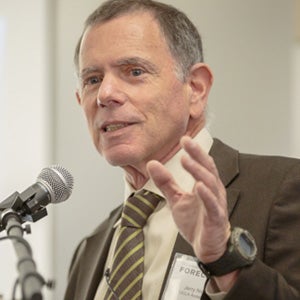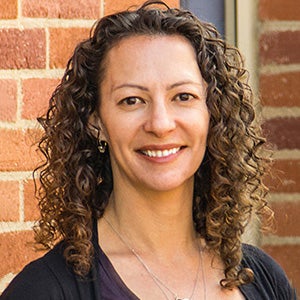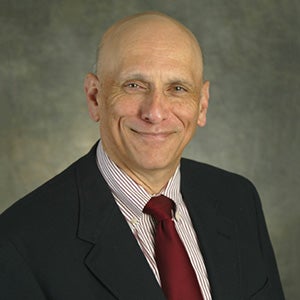Are We Prepared for the Workplace of the Future?
Are We Prepared for the Workplace of the Future?

This fall, the UCLA School of the Arts and Architecture presents “10 Questions,” a hybrid academic course and public event series that brings together leading minds from across the university. On November 20, UCLA Anderson Interim Dean Al Osborne joined designer Willem Henri Lucas, artist Catherine Opie, labor and immigration expert Abel Valenzuela and host Brett Steele, dean of the UCLA School of the Arts and Architecture, to explore the question “What is work?”
To supplement that conversation, we asked a number of UCLA Anderson faculty members to answer the following question:
FROM YOUR PERSPECTIVE, WHAT IS THE SINGLE GREATEST CHANGE THAT WILL AFFECT THE U.S. WORKFORCE AND/OR THE U.S. WORKPLACE OVER THE NEXT DECADE?
 |
Jerry NickelsburgThe single greatest change over the next decade will be the requirement that workers interact with AI devices to produce products and services. At present, the workforce is not trained to do this. |
Suzanne ShuWith the growth of artificial intelligence and just-in-time knowledge via the internet, straightforward skill-driven work will become less valued at all levels of the workforce. Valued employees will be those who know how to creatively integrate different types of knowledge from a variety of sources, and who can work within collaborative teams to solve problems and drive change. |
 |
|
Corinne BenderskyThe single greatest change will be the potential displacement of workers by technology, especially AI and automation. Although the U.S. workforce has absorbed many other major technological innovations before, each came with a significant redistribution of opportunities and wealth that exacerbated disparities between rich and poor. We need to anticipate and proactively upskill our workforce to adapt our work forms and employment relationships in ways that mitigate this potential displacement. |
 |
 |
Edward LeamerGlobal competition and artificial intelligence will continue to divide the few winners from the many losers. We need educational investments that move people from losers to winners. That requires creativity, problem solving, analytical thinking, people skills ... Or it could be some new pitchers for the L.A. Dodgers. |
 Uday Karmarkar
Uday Karmarkar